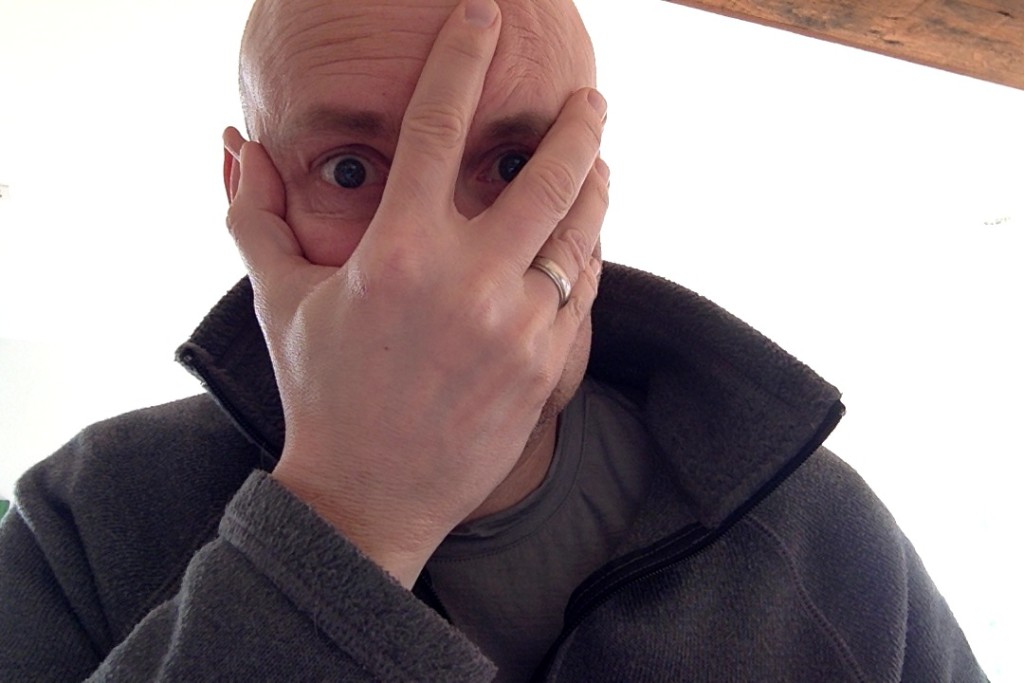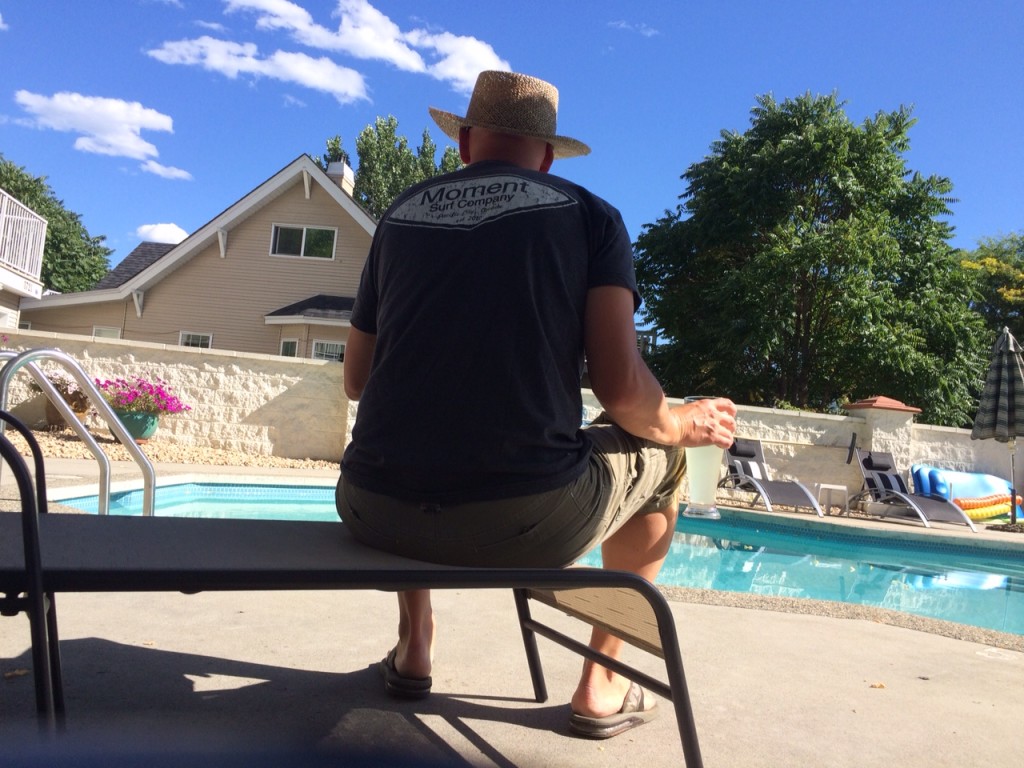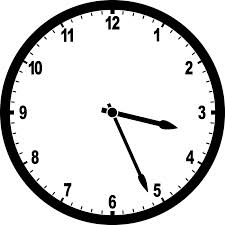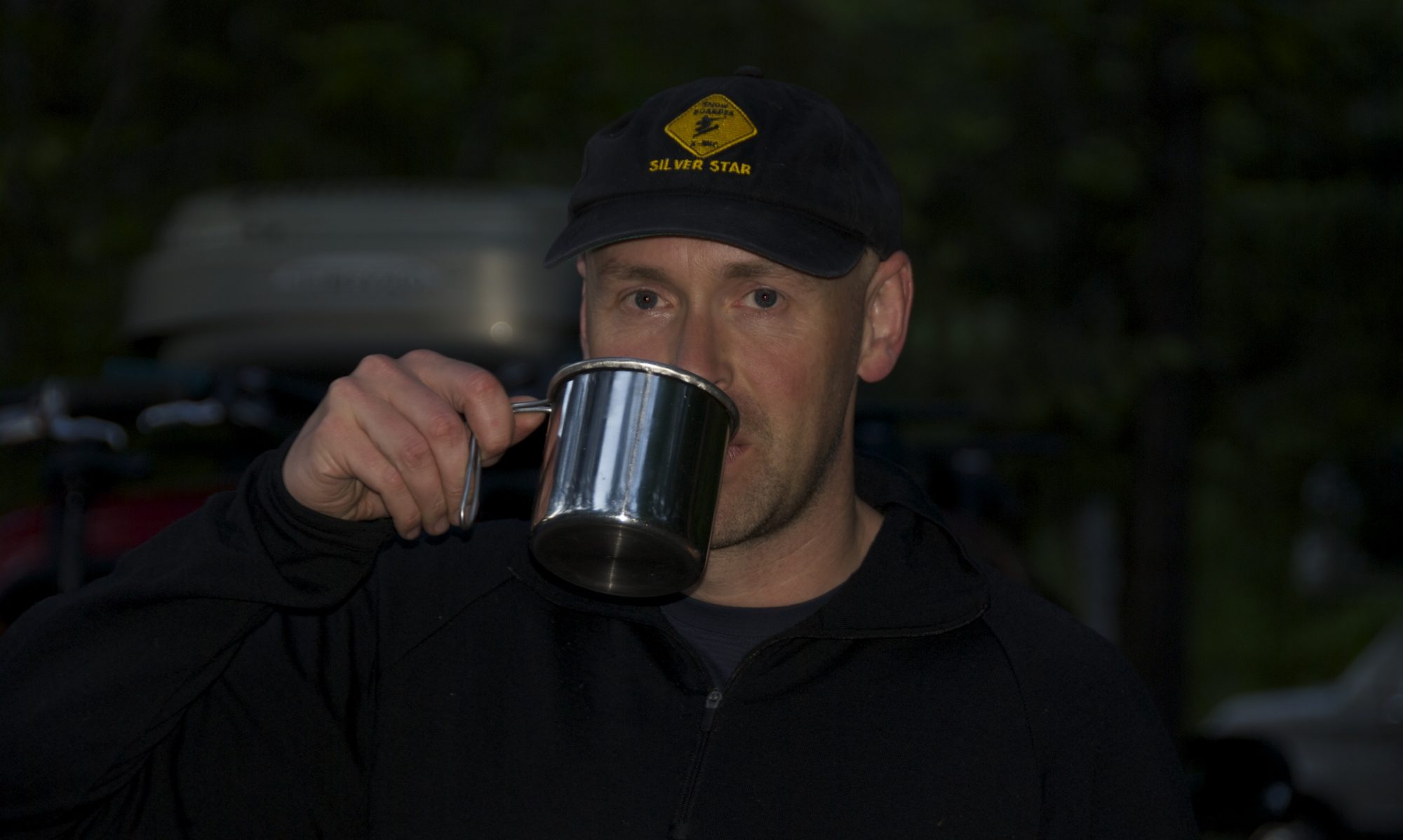Hello world!
That Shirt I Love
by Albert Berkshire
No one ever asks you about your favourite shirt.
People do, however, love to ask about your favourite colour, or food, or car, or brand of bike components…or more recently my favourite book or musician.
Maybe it’s the debate of merits that prompts these questions. People love to debate things.
Years ago, despite what I thought was an impressive collection of Nazareth vinyl, had you asked me my favourite band, I might have said it was Kiss. I had what I was certain were all their albums (yes, also on vinyl), I dressed up as Ace Frehley for Halloween when I was in sixth grade, and I certainly didn’t miss the opportunity to serenade a girl in my elementary school class (from a safe distance, of course) with the words to Beth. Though her name wasn’t Beth. A boy’s gotta try. Even the dorky ones. And to be frank, I may have been a kid, but I was pretty certain Gene had stumbled onto something pretty impressive, and I, too, wanted to rock and roll all night (Kiss, 1975). Possibly with non-Beth Beth.
And then there was the in-between years of Top 40 pop music throughout the mid-eighties that may have been the influence in a few embarrassing record purchases. Except for Madness and The Talking Heads. Madness (Our House, 1982) I can still appreciate. David Byrne of The Talking Heads (And She Was, 1985) was brilliant. (‘Though, there were too many feet in the video. Other people’s feet whig me out.)

Today, since technically by reading on you validate my need to share, I’d have to go with Led Zeppelin as my favourite band. Back in high school, when we were so much more learned and sophisticated than those elementary days, my friend Joe introduced me to The Immigrant Song. I was forever changed. Music, it seemed had more than instruments and choruses. It had feeling. It had emotion. It had lyrics that reached out and grabbed your mind in as tight a clench as with which it held on to your heart. It made us think. And we talked about it. What did it all mean? Most importantly to a couple of high school kids looking for their place in the world, the other kids weren’t hearing this stuff on the local AM radio. We had something different. And we were, in our minds, beyond cool.
Bonham, Jones, Page, and Plant made me listen. They made me rethink what words could do. And to this day, through the many incarnations of U2, the storytelling of the Eagles, the showmanship of Pink Floyd, the depression of Morrissey, the absolute cool of The Verve, the anger of the Pogues, the Ramones, The Violent Femmes, Amanda Palmer, Transvision Vamp, Nirvana, A Perfect Circle (I slept in a ditch that night), and what was described as possibly the first ever on-stage smile of Billy Corgan (also a ditch night), I am most influenced by Led Zeppelin.
Sidebar: I have been on the receiving end of the stink eye on a couple of occasions for interrupting a conversation to turn up Going to California when it started playing on the car radio. And I may have attempted a butt-grope at a high school dance during the standard last-dance song, Stairway to Heaven. But it’s as far as I got. Those Brothers and Nuns didn’t miss much.
Music, admittedly, I will gladly debate with anyone, any time.
Colours. I have a colleague who will debate colours. This possibly happens more in our day to day world of advertising and marketing consultations, but there are specifically studied, established and accepted theories on the impact and influence of colour. The soothing light blue, the urgent red, the hungry yellow (which is why so many fast food restaurants use yellow and red), the calming green. Seriously, we can all mellow out and take a nap at Starbucks.
We can debate these things, but in the end, you either like a colour, or you do not. And as I was asked a couple of weekends ago by a friend as we were getting ready to go out, “Albert? Is green your favourite colour?” I replied without delay, looking at my shirt, “I guess it is. I seem to have it on.”
I’ll get to the heart of the matter (Henley, 1989) in a moment, but first, the others. Sushi. Porsche. SRAM. In case you wondered.
And the book? That’s the tough one. I’ve raved for years about John Birmingham’s He Died With A Falafel In His Hand. A roaring memoir about his time in share housing in Australia. Kurt Vonnegut’s Galapagos left me somewhat dazed and confused (‘Zep remake, 1969). Douglas Copeland’s Generation X, The Bubblegum Thief, and All Families Are Psychotic each kept me feeling like I was going to be forever young (Dylan, 1973). Joseph Monniger’s Eternal On The Water gave me a new appreciation for ravens and crows, and being a lover of nature and the First People’s spiritual world, it still resonates with me. But I’d have to argue that Tom Robbin’s Fierce Invalids Home From Hot Climates may be my favourite book of all time. The insanity of the characters, the rolling storytelling, and the depravity of the idea and ideals truly did take me over the hills and far away (‘Zep, 1973).
A couple of days ago, walking through a parking lot in search of a Thai restaurant (second most favourite food), my wife’s mother said, “Albert…Rosie and Marie said to tell you they enjoyed your book and that you are a good writer.”
“That doesn’t mean they liked it.” I said.
“No.” she relied. “I guess it doesn’t.”
“It’s okay.” I said. “It’s all very subjective. It either resonates with you, or it does not.”
“Well…” she continued. “We did have very different ideas about the ending and they debated it for quite some time. And they want me to ask you if he was or wasn’t…”
“Paulette,” I interrupted. “Your daughter still hasn’t read it. So we should stop there for now.”
I went on to explain that other than the beginning chapter and the ending, I hadn’t read it since the editor did her thing. It’s my preference to not know how she changes my story. (When I hand it over to the publisher, I’m happy with the story I wrote. If they feel they need to change something, then they change it. I know what I wrote and that was the story I wanted to tell.) My point was that I’m certainly not going to explain the characters’ motivations. That, I leave up to the reader – to debate, or not to debate.
But what she said was possibly the nicest feedback I’ve had on We Made A Pact.
It spurred a debate. And that’s the greatest compliment I think I could ever receive for my work.
By the way, that shirt I love? I got it in June of 2011. I was in Seaside, Oregon, when I walked into Moment Surf Shop. I wasn’t looking for a shirt. I don’t like to sport a lot of logos. But this one just had the right feel – at the moment. Serendipity, I guess.
The shirt certainly has seen better days, but it’s been a constant. It’s been the slip-on shirt after more than one muddy mountain bike ride, and has faithfully hung out with me by the pool…sometimes on a sunny day, it’s just been wrapped around my head. It’s just one of those things you come to appreciate. Even if it is just a shirt.
Pretty certain we can’t debate the merits of a shirt. That, I guess, is a safe zone for me.
But I’ll always debate the impact music can have on one’s life. I listened to a lot of music when I was writing We Made A Pact, and from that extensive playlist, I narrowed it down to 24 songs that I felt spoke the emotion of the story. Maybe one day I’ll share that playlist.
We can debate it, if you wish.

Albert Berkshire is a storyteller. His first novel of fiction, We Made A Pact, is published by Friesen Press. It is available in hardcover, paperback, and in various e-book formats. Just follow the links if you’d like to check it out. I hope you will. Public reviews are always welcome. Swapping stories of the first record purchase is welcome, too. For a much shorter, and less frequent rambling, Albert is found on Twitter @albertberkshire, and semi-socially at www.facebook.com/AlbertThomasBerkshire
The Characters in the Characters
– by Albert Berkshire

“Good mornin’ to ya.”
It was a raspy voice on the other end of the phone. An uncomfortable, almost sinister giggle followed the greeting.
I had been warned about this one. It was one of those benign comments that seemed to float in the air as a conversational afterthought as the Iceman walked out the control room door about three hours earlier.
“She’ll call you at 3:26am.”
“Who?” I asked expecting there was some additional protocol I had to follow.
“Madeline the crazy cat lady. She calls every night.”
It was September of 1991. I was fresh out of Journalism school and no where near my intended (r rather, hoped-for) employment as a television reporter for the CBC. I was, instead, and now much to my hindsight delight, a radio DJ at CFCB. It was a tiny radio station that played a disturbing equal rotation of pop, oldies, country, and on Sundays, traditional folk music. And yet, it was hugely successful. I’ll never understand that part of the equation. At the time, I could never imagined that the best stories in life would come not from the news, rather the people the news rarely ever found. The lonely, the single, the assumably psychotic, the drunk, the stoned, the learned, the uneducated, the criminal, the incredibly young and up too late, and the very old and up too early were all there – on the other then of the phone. And they had someone new to call and share with me their complaints, their ideas, their loves and hates, their moments of brilliance and their heartbreaks. They had stories to tell. Completely unknown to me then, I was sitting in centre of the amphitheatre of anecdotes. Awkward affected alliteration and all.
“Guess what kind of movie I’m watchin’? The raspy, creepy tone on the other end continued.
And then the laugh. Again.
“Hi Madeline.” I offered, ignoring the question.
Another sinister giggle of delight.
“How did you know it was me?”
“It’s 3:26.”
She giggled. Then she requested her song.
She requested Simon and Garfunkle’s A Bridge Over Troubled Waters. Instantly, we were not friends. I mean, it was well written, and it was a fairly good hit, but it was painful in every way. And what overnight DJ wanted to play a sleeper song when he was going to be pulling his first sober all-nighter? It was the start of a long, bizarre chain of events that no amount of drugs or alcohol or head banging on a wall can erase from my memory. And it was a weird one. Really weird.
My first fan was a nut job. And really, there could have been a potato in the control room chair and she would have been a fan had Spud been willing to play her a melody.
I worked for almost 15 months in that little town before I had occasion to meet Madeline. I was doing what we called an “on location”. I was in a shopping mall with headphones, microphone and miscellaneous pieces of equipment in tow when the person who was about to relieve me at my post showed up a few minutes early. After nearly four hours of standing in one spot, drinking far too much tea, making small talk (still my least favourite of all conversation derivatives) with strangers who knew me by default of having a radio in their home or car or office, I was busting for a bathroom break. I sprinted down the hall.
On my return trip, I did the customary lap past the arcade – a place I spent many hours as a kid – and waved to Radar. Radar was the security guard who constantly muttered “Move along, move along” to every kid who found sanctuary, entertainment and friends in the mall over the course of many years. Today, though, Radar would finally be unable to rush me along. Being employed and in the mall with purpose had a decidedly wonderful benefit. As I strolled back, I heard the giggle.
The rasp was in the mall…and I wasn’t ready to make visual friends.
I stopped at the grocery store and watched.
This little medicine ball of a woman – as broad as she was tall (and that wasn’t very broad, either) – was chatting up my broadcast replacement. She waved her hands around as she talked, and as distracting or animated as that usually is, it was her head that captured my attention. Her head was tiny. Not unusually small or disfigured, but proportionately smaller than the rest of her body. Like it was 75% of its intended volume. Partially deflated, like a five day old balloon. Her raspy giggle echoed in response to whatever the other DJ said to her until she wandered away toward the food court.
More than 20 years later, I can still hear her voice. I can still see her partially deflated head sitting on top of her round torso. A child’s snowman.
4:01am. Same first night. I just butchered my news cast. The phone flasher is flashing…as I imagine one would expect. Phones didn’t ring in control rooms. They flashed. A simple and understandable logic. At this moment, I’m sure someone is calling to tell me how much I suck as a DJ. My goodness I was terrible. When I answer the studio request line, the voice on the other end of the line begins.
“Hello. It’s Charlie from Sheshatshui (shesh-sha-she).”
- Sheshatshui is an Innu Nation in Labrador – a northern mainland part of the Canadian province Newfoundland & Labrador. Geographically, it is on the western edge of Lake Melville on the northeastern coast of North America. Sadly, like many other First People’s communities in North America, it has been stricken with incidents of substance abuse over the years. Most notably, the consumption of alcohol has had a drastically negative impact on its band members and the greater community. I share this with you because as much as this troubles me (my maternal lineage is partly of the Mi’kmaq peoples), I was a younger, less travelled, less informed, and much less socially sensitive person the night Charlie first called. I also see humour in places most people feel it is politically incorrect to acknowledge said humour. But that’s the beauty of being a writer. I’m the one with pen. And I don’t care what people think of my writing. I just write what I want and people vote with their eyes. And drunk Charlie was funny. His story was funny.
“Hi Charlie.” What can I do for you.”
“Ahhh. Me and my girl Brenda were just having a few pops, eh.”
There was a noticeable slur in his delivery.
“A few?”
“Ah ha (insert strange drunken laugh) yeah we’re kinda drunk.”
About this point in the conversation, Charlie asked for a song and went on his way. He was harmless. Moreover, he was less frequent a caller than Madeline. He normally called early every Sunday morning, after having a few beverages at some form of party that began Saturday night. All he ever wanted was to request a song…
…and fried chicken.
Charlie called me one night after about a month long absence. When I asked him where he had been, he launched into the craziest story I had heard up to that point in my life. And trust me…I never thought the magical five white Omnis passing me on Highway 95 north would ever be topped. But that was a drug-fueled haze that I was never 100% certain happened – as fantastical as it was.
“Charlie,” I started. “Where have you been.”
“Oh…we kinda got in some trouble?”
He giggled.
“What happened?” I asked. It was about 2am and I was in need of some social activity. Even a drunk person was more interesting that anything I had to entertain me at work.
“We all got a little drunk and decided we wanted some Mary Brown’s.” (Mary Brown’s is an eastern Canadian fried chicken chain restaurant.)
“Really.” I said. This story was getting better by the second.
“So we all put our money together and chartered a plane to fly in some chicken.”
This moment still brings tears to my eyes.
“We ran out of money and the welfare office got really mad at us.”
In hindsight, Charlie and the Chicken Charter never came to mind. Damn, those Innu-Loompas would have been adorable.
When I listened to Charlie and Madeline, and their fantastical stories – believable or otherwise – I saw a characters – not people. And as horrible as that may seem to say about another human, it’s what I see. This may be more prevalent in passive friendships, as opposed to those in my life with whom I have a closer, more personal relationship. Although, many of my closest friends display some of the most interesting characteristics and personality traits. I’ve already warned them that the season for creative license never closes. Anything they say, do, or present is fair game and may end up in something I write. Most people squirm a little when I share that news. One person left the room.
As a writer who prefers fiction, these people, these experiences, these bizarre and unexpected characters I meet, and mentally dissect, represent a treasure trove of humour, comedy, and heartwarming memories of how strange my life can get – or anyone’s life for that matter – if you look just below the surface.
They are the little personalities we get to know who live inside the people we know. And as my mother used to say to me, “My God, Albert. The people you know.”
I realize now, she never meant the number, but rather the quality.
The characters in the characters.
Albert Berkshire is a writer, producer, voice actor…storyteller. He meets perfectly normal people all the time, and finds a way to turn them into delightfully amusingly, and sometimes psychotic characters. Or he just shares breakfast with them and goes on his merry way. His love of storytelling, and his passion for the written word, has helped make his company, GreatCreative.Com, successful. For a much shorter, and less frequent rambling, follow Albert on Twitter @albertberkshire.


You must be logged in to post a comment.